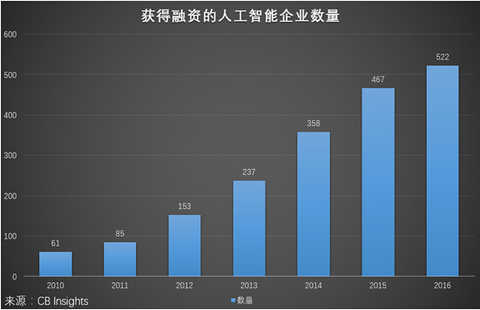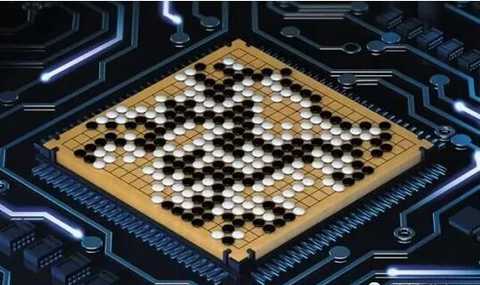HC Security Reuters moment, whether it is the focus of consumer demand, or the capital market, artificial intelligence is becoming nowadays the most representative of the direction of industrial development. The smart home market has entered the Eight Immortals crossing the sea, and each of them has a big melee. The arrival of the artificial intelligence wave will undoubtedly bring new hope to the smart home industry. Smart home status When you get home from work, or get up in the middle of the night, do you touch the phone to unlock the app and turn on the light, or press the switch directly? Although it is a joke, it is basically clearing the current smart home products. The status quo. The willingness of smart homes to us is very good: In the morning when you wake up from your sleep, your favorite music rings, the curtains are slowly opened, and the air conditioner is automatically adjusted to the appropriate temperature and humidity; A bread machine, coffee machine and kettle are automatically activated to prepare a delicious breakfast for you; The dishwasher will help you clean the pot and the sweeper will help you clean up the trash; You are happy to go to work, the door locks are automatically opened and closed, the electrical appliances in the house are all closed, the intelligent security system is turned on, and the emergency incidents at home are reported to you at any time; at home, the door locks and lights are automatically turned on, TV, air conditioning, The air purifier is turned on... But what is the current status of smart homes? Most of the smart products on the market are still in the stage of remote control and timing. For example, to turn on the lights, you need to pull out the phone, open the app, and find the lights you want to turn on. Touch to open. Is it really not so convenient? And different brands of smart home products can not control each other, so you have to control the home appliances, you also need to open a different APP ... This is unacceptable to many consumers. In this regard, the authoritative source of the industry believes that the current smart home really enters the second stage, which is based on the linkage of different intelligent items on the intelligence of the first stage of the single item, but these are far from being able to make The real home of the smart home will continue to work hard and strive to enter the third stage, which is a fully automatic, self-learning and self-aware smart home system based on artificial intelligence and big data. (Source: CBInsights) Artificial intelligence is expected to save the smart home industry The arrival of the artificial intelligence wave has undoubtedly brought new hope to the smart home industry, and smart speakers have become the most typical case. Since Amazon launched the smart speaker Echo in November 2014, it has only achieved two million and a half years of sales, and Alexa has become the connection center connecting many applications. On June 5th, Apple held the 28th WWDC Global Developer Conference to launch HomePod, officially announced its entry into the smart speaker market. The intelligent speaker has the functions of intelligent central control, control of smart home, etc. It provides cloud computing and big data processing capability through open source and open IoT operating system and platform, which not only realizes the interconnection and interoperability between the network device and the network device, but also relies on powerful human face. Technologies such as recognition, voice interaction, semantic understanding, and image recognition help users to control smart products with more natural and friendly voice commands and gestures. They can also provide users with initiative by sensing and learning user behaviors and life preferences. The smart home life service realizes the interconnection and seamless connection between people and network devices, network devices and external resources. Smart speakers are not an end in themselves. The giants are vying for the data, users and service portals behind them, and the speakers can assume other functional carriers in addition to the interaction. When the user returns home and the smart speaker says that the home is hot, the previous control method is 'turn on the air conditioner, the cooling mode is 23 degrees Celsius', but in fact people do not communicate like this, but say 'how is the home so hot', this When the AI ​​brain associates all the connected devices in the home, it makes a comprehensive judgment. It may be outside the breeze, and when the PM2.5 is very low, the smart speakers coordinately open the window to blow the natural wind instead of directly turning on the air conditioner. Each networked device will have a machine learning engine that will make better service and make better decisions through historical data and current data. This is a new opportunity and new scene brought by artificial intelligence to smart home. Can help us achieve a true smart home life. Artificial intelligence determines the future The core of smart home is intelligence. In fact, any product is a balance of cost and benefit. TV gives more entertainment, entertainment benefits are big enough, it is popular. The current smart home brings less benefits and costs, so no one cares. The key to the high efficiency of smart homes is intelligence. Not being able to connect to the Internet, the washing machine controlled by the mobile APP is smart. It will automatically collect dirty clothes, automatically clean, automatically dry, and automatically put clean clothes into the wardrobe. The comprehensive laundry equipment is smart home. The price of such a washing machine will be higher, and some people will pay because it changes the way people wash clothes. Automatic collection of dirty clothes requires computer vision to identify the clothes, know what is the clothes, and then know what is dirty clothes. At the same time, precise motion control is required to allow the machine to take the clothes and put them in the tub. Finally, after drying, find out which clothes are stacked in the closet and put them in the closet. The core technology of this kind of equipment is not the camera, motor, processor, communication chip, but the high degree of artificial intelligence algorithm, neural network, deep learning, computer vision, etc... The seemingly simple housekeeping needs, the required artificial intelligence level ratio Alphago beats Ke Jie's artificial intelligence even higher. Conclusion: Although the combination of smart home and artificial intelligence is still in the early stage of the melee, with the invisible hand of the market, the smart home with high artificial intelligence instead of human is the king of the future, facing the smart home in different aspects. The pain points and the shortcomings of the industry have created a multi-scenario, multi-terminal intelligent ecological strategy, and a smarter future may emerge in the near future. Editor in charge: Liu Wenjuan NINGBO BABY FIRST BABY PRODUCTS CO.,LTD. , https://www.maxinfcarseat.com
